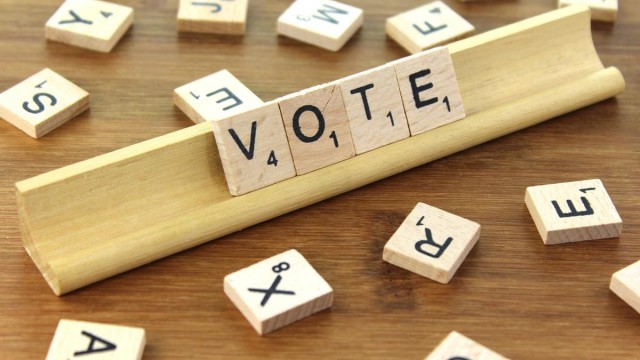The 9th of February, 2024, the day following the general election in Pakistan, appeared to be a normal day in the lives of doctors, engineers, entrepreneurs and other professionals who adhere to a 9-to-5 routine and then return home, rest, have dinner and go to sleep. However, for journalists, news reporters, party workers and police personnel, the day was nothing short of a nightmare. The nation eagerly waited for the Election Commission of Pakistan (ECP) to announce the results of their votes cast for which they had channeled their democratic fervor, an otherwise rare occurrence. Meanwhile, news channels competed fiercely, streaming sensational headlines with unofficial voting tallies in an attempt to dominate the ratings.
There have been multiple reports calling the credibility of Forms 45 and 47 into question when the Election Commission of Pakistan (ECP) officially announced the results on 11th February, 2024. In some constituencies, political parties that were considered unlikely contenders, including candidates who never stood a chance, emerged as victors. Interestingly, certain constituencies reflected the exact results as those displayed in unofficial reports. Upon comparing voter lists, it was observed that the winning candidates typically received 30,000 to 80,000 votes. However, the Returning Officer (RO) forms and media coverage presented a stark contrast to the initial reports.
Section 8 of the Election Act 2017 empowers the ECP to conduct elections that are fair, just and transparent. However, accusations of rigging and seat-adjustments have sparked numerous protests and unrest among voters. Irrespective of political affiliation, every party has at least one candidate lodging complaints of rigging. Forms with white-out edits and discrepancies in pen-ink have gone viral across the media, drawing not only the attention of the nation but also garnering international media coverage. The international reaction has been far from subtle.
People on social media have not only focused on the current election but have also drawn comparisons to the Kennedy era. Some have even brought up the Pakistan-Bangladesh separation debacle in the context of the ongoing political turmoil, raising questions about the country’s ability to uphold its constitutional dignity through conducting free and fair elections. If a state is struggling with such a fundamental task, how could it have been trusted to safeguard the interests of a nation it never truly acknowledged?
The debate surrounding the fairness of elections and allegations of rigging is far from simple. Rigging is not merely an allegation; it is a direct assault on our constitutional dignity, which is now being openly ridiculed in international media. In a country already struggling through its developmental phase, such headlines are akin to the tip of the iceberg leading to the sinking of the Titanic. If a state fails to safeguard the very code that defines its existence, how can it be expected to uphold various international conventions and agreements with its allies?
There are typically two types of people: those who have lost and those who have won. However, in Pakistan, you’ll find a third category: the middle-tier trouble-mongers who support both sides and refuse to take a definitive stance. These individuals, the neutrals, in decision-making roles, wield significant influence over Pakistan’s future. The day they denounce this mockery of democracy and recognize it as fascism, will be the day marking the end of all non-political entities that have contributed to the mayhem thus far.
Transparency is of paramount importance in 2024, the digital age propelled by fast-paced minds. From audio leaks to changes in font size, every detail is laid bare and disseminated across social media in seconds. An exception to this occurs when the authorities disrupt the internet connection itself, a tactic witnessed during these elections.
The question of transparency is also applied to the conducting of elections in modern times in this country, raising concerns about the integrity of the state and its subjects. This time, however, it transcends mere doubts and represents a direct attack on constitutional dignity. The surfacing of evidence online (such as Forms 45 and 47), along with international posturing, underscores the severity of the situation. Even though it may not seem like a big deal at first glance, just like the iceberg that sank the Titanic it possesses the potential to plunge us all into deep trouble.
Pakistan has faced persistent challenges in conducting elections and continues to grapple with allegations of rigging which have cast shadows over the democratic process. The nation has witnessed a longstanding historical struggle to ensure free and fair elections, blotted with controversies and disputes surrounding the transparency of the electoral system. Instances of alleged rigging and irregularities have raised concerns about the integrity of the electoral process, prompting demands for reform and greater oversight. The quest for a robust and reliable electoral system continues to be an ongoing journey as Pakistan navigates the complexities inherent in the democratic exercise, seeking to strengthen the foundations of its electoral democracy.
The views expressed in this article are those of the author and do not necessarily represent the views of CourtingTheLaw.com or any other organization with which she might be associated.



Fantastic read! I was especially impressed by the depth provided on the topic, offering a perspective I hadn’t considered. Your insight adds significant value to the conversation. For future articles, it would be fascinating to explore more to dive deeper into this subject. Could you also clarify more about the topic? It caught my interest, and I’d love to understand more about it. Keep up the excellent work!